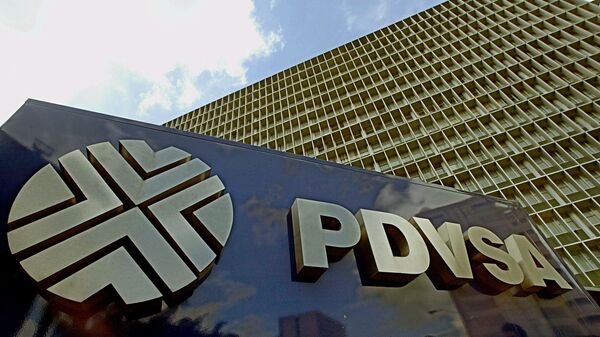The Paris-based International Court of Arbitration of the International Chamber of Commerce (CCI), has decided to put legal proceedings against Petróleos Paraguayos (Petropar), induced by Petróleos de Venezuela SA (PDVSA) over a $300-million-debt on hold, Ultima Hora reports.
Petropar’s President Patricia Samudio confirmed that the ICA has ruled to temporarily suspend any type of negotiations between her company and the Venezuelan oil giant while Nicolas Maduro’s government stays in power. Samudio explained that the ICC tribunal had decided to recognise the authorities picked by self-proclaimed interim president Juan Guaido and to ignore Maduro’s appointees, according to the outlet. She expressed the company’s happiness over the decision.
According to Petropar’s legal team, the international organisation’s ruling establishes a temporary pause, but the trial would continue after a transfer of power to Guaido and Venezuela’s political issues are resolved. The company’s lawyer explained that the first step following the transition of power would be to initiate talks and suspend any progress reached in negotiations with Maduro’s administration. He confirmed that Petropar is ready to pay interest on its debt to PDVSA, which exceeds $300 million but added that the parties should first agree on terms.
Venezuela’s self-proclaimed president Guaido earlier claimed it would be correct for Paraguay not to pay the debt to the Venezuelan oil company because Nicolas Maduro would not use the money properly.
PDVSA's claim against Petropar for the aforementioned debt originated during Nicanor Duarte Frutos' and Fernando Lugo’s presidencies in Paraguay about 10 years ago. Subsequent negotiations over payment did not reach an agreement, so, several years ago in 2016, the Venezuelan company filed a lawsuit with the ICC Court of Arbitration.
READ MORE: Venezuela National Assembly Names PDVSA Subsidiary's Directors Board — Guaido
Venezuela has been dealing with a severe political crisis since January, when the leader of the country's opposition, Juan Guaido, illegally proclaimed himself interim president, contesting the re-election of Maduro last year. The self-proclaimed head of the government immediately received support from the United States, who has also denounced Maduro's re-election, along with several other countries. China, Cuba, Russia, and a number of other countries have endorsed the constitutionally elected Maduro as Venezuela's only legitimate president.
Since then, the state-run PDVSA and several high-profile banks in the country have faced severe sanctions. The US has imposed several rounds of measures against Venezuelan officials and entities and blocked $7 billion in assets belonging to PDVSA. Maduro has denounced the sanctions as an illegal attempt to seize Venezuela’s sovereign assets.


